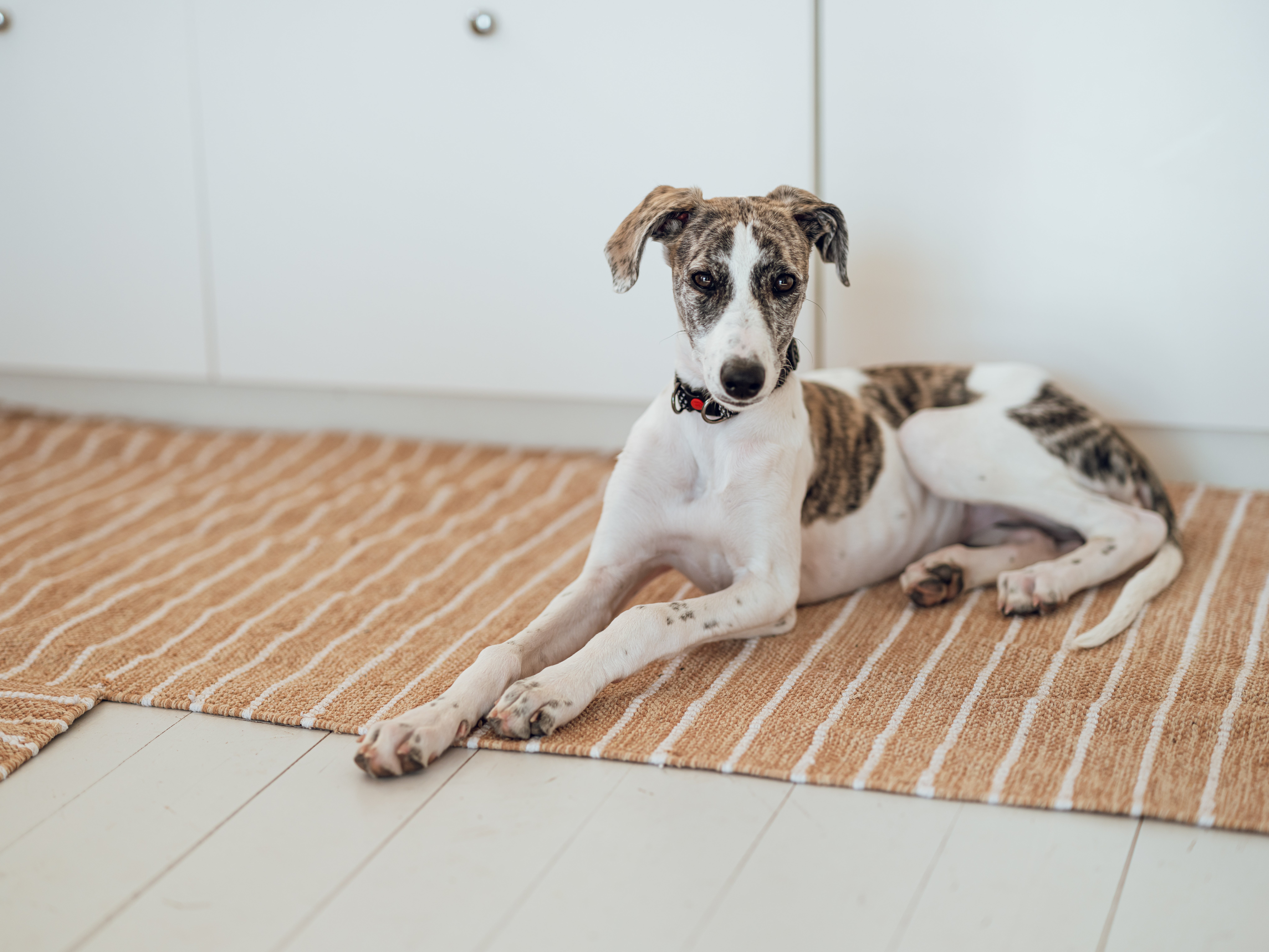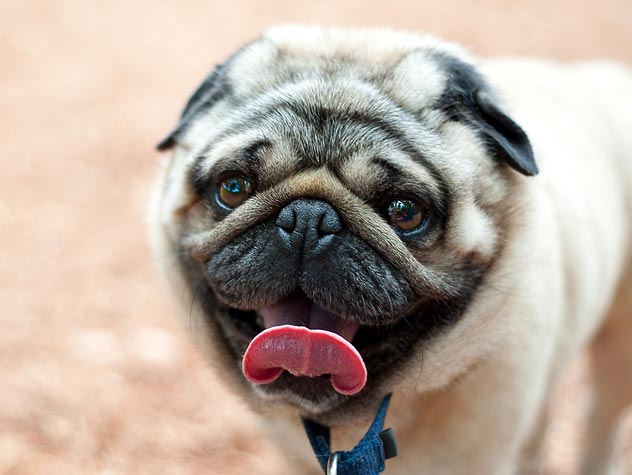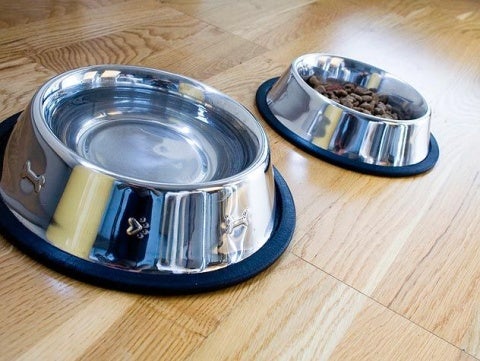Lurcher
More of a type than a breed, the Lurcher type includes dogs that are usually a mix of sighthounds and pastoral and/or terrier breeds. Their tall, slender builds and sighthound-related lineage unite all under the Lurcher umbrella. This type is typically affectionate with moderate energy levels. Because they’re so smart, consistent positive reinforcement training works well.
Breed characteristics carousel
Learn More
Need to Know
- Dog suitable for owners with some experience
- Basic training required
- Generally healthy breed
- Enjoys moderate walks
- Medium dog
- Minimal drool
- Requires frequent grooming
- Quiet dog
- Barks and alerts to visitors/anything unusual
- Could have issues with unknown dogs but gets along with known dogs
- May need additional training to live with other pets
- May need additional supervision to live with children
- Needs a small yard or can happily live in the city
- Can be left alone occasionally with training

Personality
Lurchers are smart and adoring dogs. Because of their sensitive nature, they do well with positive reinforcement training and tend to develop strong bonds with their families. They’re often called “gentle giants.”
Although the Lurcher’s exact origins remain a bit mysterious, the term “lurcher” has been used across England since at least the 1800s to describe a crossbreed between a sighthound and any other type of dog. It’s hard to locate exactly when Lurchers arrived in the United States but it’s likely been several hundred years.
Power walkers, rejoice: Lurchers thrive with owners who enjoy long, frequent nature walks and have a good sense of humor. They require gentle handling as they can be sensitive.
Lurchers were born to run and are happiest when exercised properly. If they can run freely, Lurchers will stay stress-free. It also helps to avoid running them up and down inclines as well as running through heavy ground.
This dog type is very adaptable. Lurcher dogs run the gamut in size and can ball up very small or be champion jumpers or diggers, so make sure that a backyard fence is not just present but also very secure.
Regardless of coat type, all Lurchers benefit from checks to ensure they didn’t sustain any injuries or otherwise pick up debris. Use a cloth to wipe them down and a stiff-bristle brush to stimulate the dog’s smooth-coated skin. More rough or longer-coated Lurchers require more frequent grooming to avoid mats.
Lurchers are smart dogs eager to problem-solve and work with their families. They appreciate positive reinforcement methods but aren’t as food-motivated as some breeds. Instead, try to motivate a Lurcher with mentally stimulating games.
The Lurcher dog type does well with families who have older children who understand their gentle demeanor.
The cost of a Lurcher from a breeder is significantly more than the cost of adopting one from a local shelter or rescue. The adoption fee usually covers additional items such as spaying or neutering, vaccines, and microchipping.

Learn more about feeding and caring for your Lurcher on Purina.
Did You Know?
- They may be built like Olympic athletes, but Lurchers can also be total couch potatoes.
- Lurcher-type dogs do very well in dog sports such as lure coursing.


